Monthly Journal
May 2024
International Press Review
The most relevant events of the area through international sources
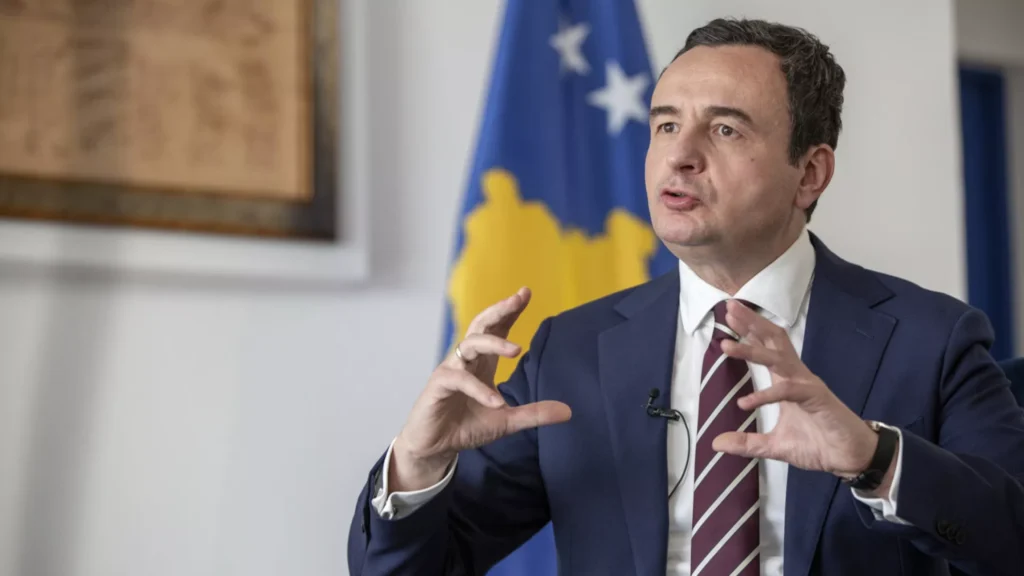
Kosovo’s bid to Council of Europe fails for now
Associated Press
Kosovo criticised the Council of Europe’s decision against holding a vote on its membership in May, saying it deprived its people and especially its ethnic minorities of democratic tools offered by the continent’s top human rights body. Kosovo’s membership was not on the Agenda of the Council’s Foreign Ministers meeting after some members, apparently France and Germany but also Italy, required Kosovo to create an association of Serb-majority municipalities in the country’s North before a vote could take place. Kosovo fears such association in Kosovo could turn into another Republika Srpska with a too broad autonomy.
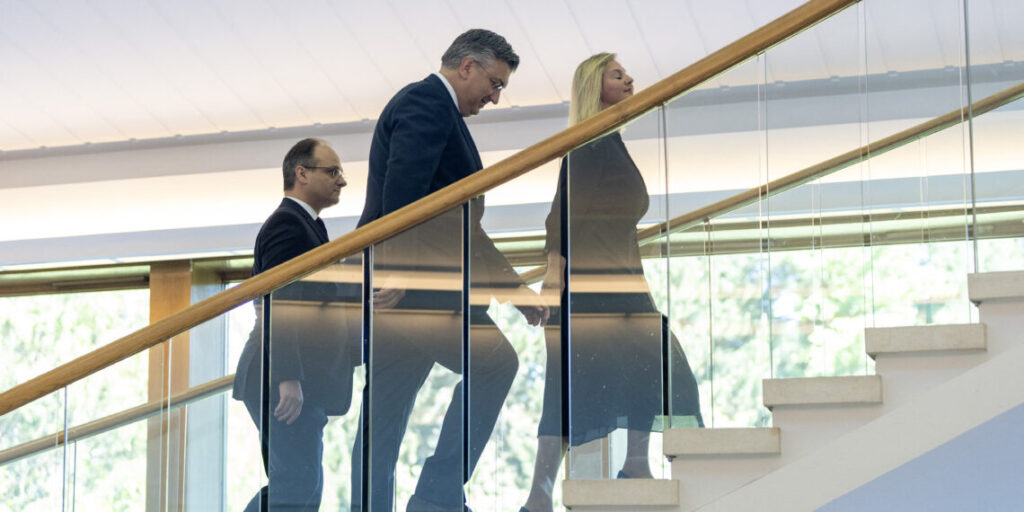
Croatia turns right after parliamentary elections
Euronews
Croatia’s ruling HDZ party, in power since 2016, formed a governmental coalition with the far-right Homeland Movement (Domovinski Pokret), a political group mainly consisting of radical right-wing nationalists. This alliance, following an inconclusive parliamentary vote and weeks of political uncertainty, signals a significant shift to the right of the new Croatian government, ahead of the upcoming European elections. The Homeland Movement is a recent addition to Croatian politics, having originally branched off from the centre-right HDZ.
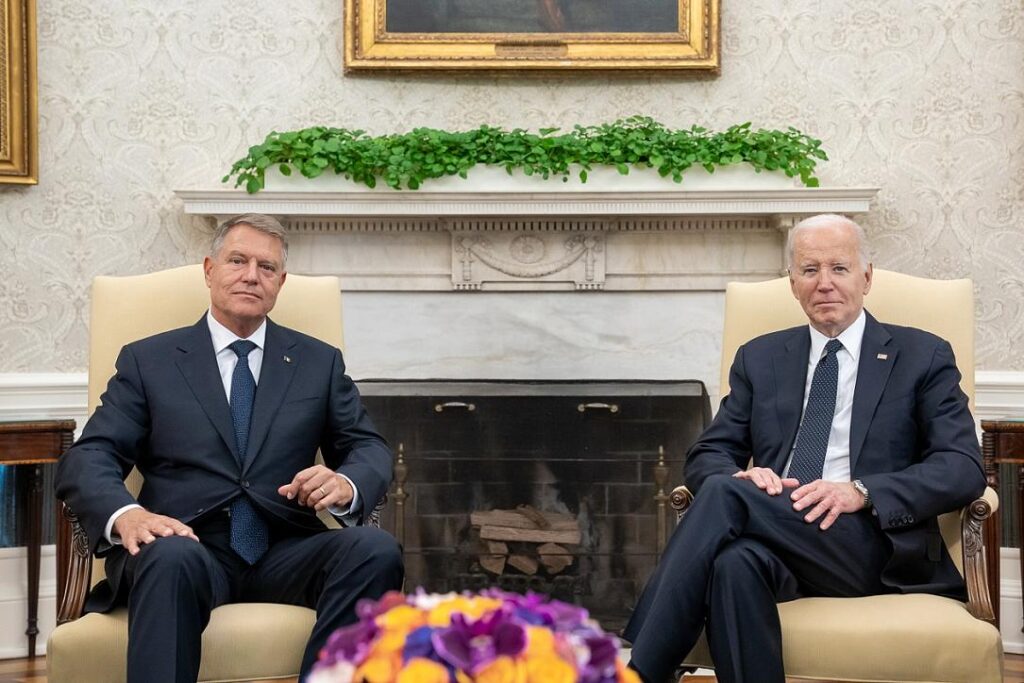
Biden thanks Romania for its contribution to NATO and security
Romania Insider
US President Joe Biden thanked his Romanian counterpart Klaus Iohannis for Romania’s significant role in NATO, 20 years after joining the Alliance. During a meeting in Washington, Biden stated, “You [Romania] have exceeded all expectations 20 years ago when you joined NATO. Thank you for all you do as part of the Alliance”. Biden also commended Romania for its assistance to Ukraine, especially in the Black Sea area. Additionally, Iohannis discussed his NATO leadership bid against Rutte, but declined to provide details, citing the possibility of one candidate not achieving unanimous support and the importance of having multiple credible candidates.

Kosovo closes Serbian banks in northern Kosovo
Euractiv
Kosovo’s police closed six branches of a Serbian bank in the Serb-majority North of Kosovo on the 20th of May, nearly four months after Pristina enforced a decision stating that the euro is the only legal tender. This negatively affected Serbs in the North who still received payments from Belgrade in dinars. Serbia, that finances Kosovo’s Serb minority, condemned the move, accusing Pristina of “terrorising” ethnic Serbs. The Kosovo Central Bank had enforced a regulation on the 1st of February requiring all payments to be made in euros. The police stated that the closures were to establish order and legality and were conducted without incident.
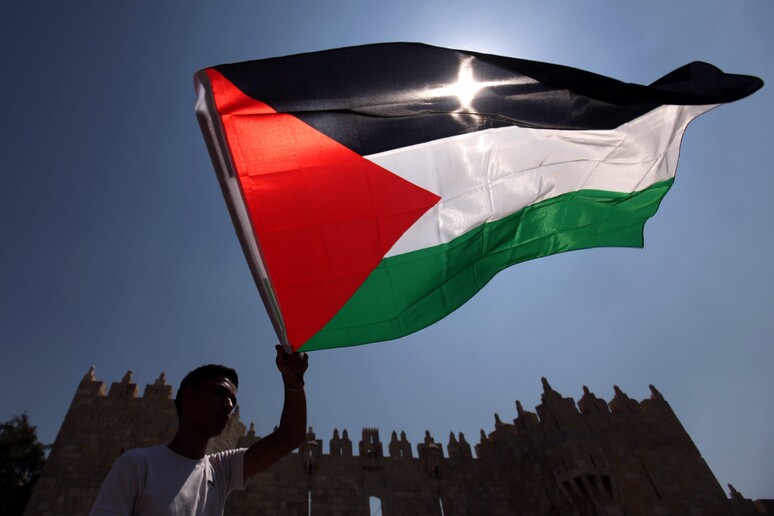
Slovenia launches procedure to recognise Palestine as a state
STA
Slovenia initiated the process to recognise Palestine, announced Foreign Minister Tanja Fajon. A motion for recognition was set to be presented to the National Assembly by the 4th of June, signalling a commitment to a two-state solution in the Middle East. The move, needing a simple majority, will have the backing from the ruling coalition but is probably facing opposition from opposition parties.
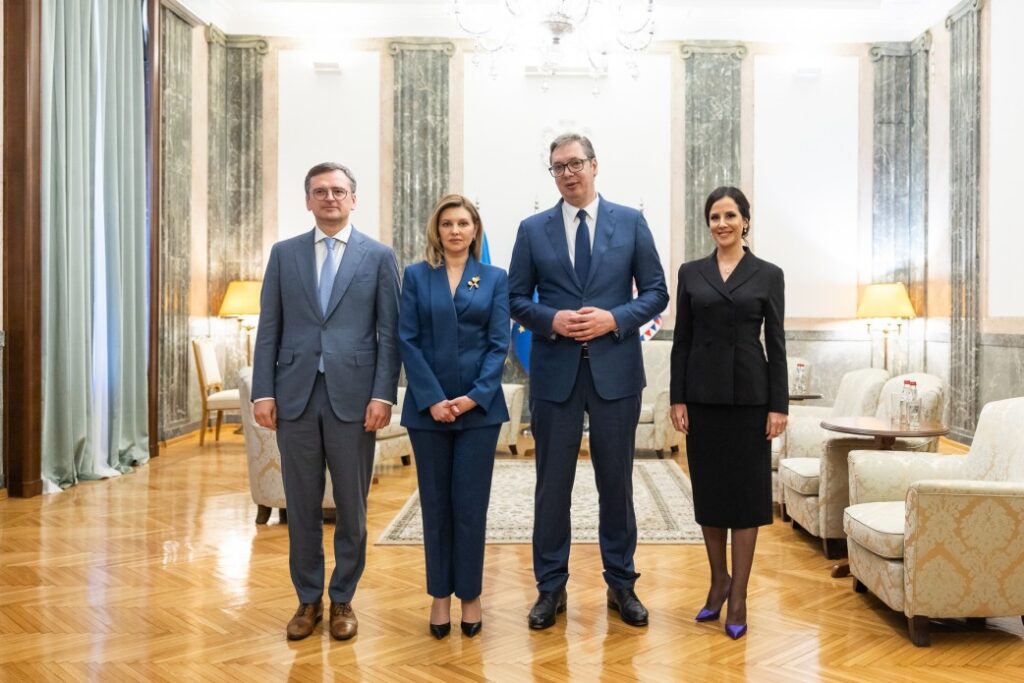
Zelenska and Kuleba visit Belgrade
Reuters
Ukraine’s First Lady Olena Zelenska visited Belgrade in May, marking a significant shift as the first top Ukrainian personality to visit Serbia since the 2022 Russian invasion. Accompanied by Serbia’s President wife Tamara Vučić and Ukraine’s Foreign Minister Dmytro Kuleba, Zelenska toured Belgrade and the famous Kalemegdan Fortress. She also attended a university Cooperation Agreement signing. This visit reflects Serbia’s efforts, led by President Aleksandar Vučić, to balance ties between the EU, Russia and China amidst geopolitical tensions. Serbia is rumoured to be supplying arms and ammunitions to Ukraine, despite the bond between Moscow and Belgrade.
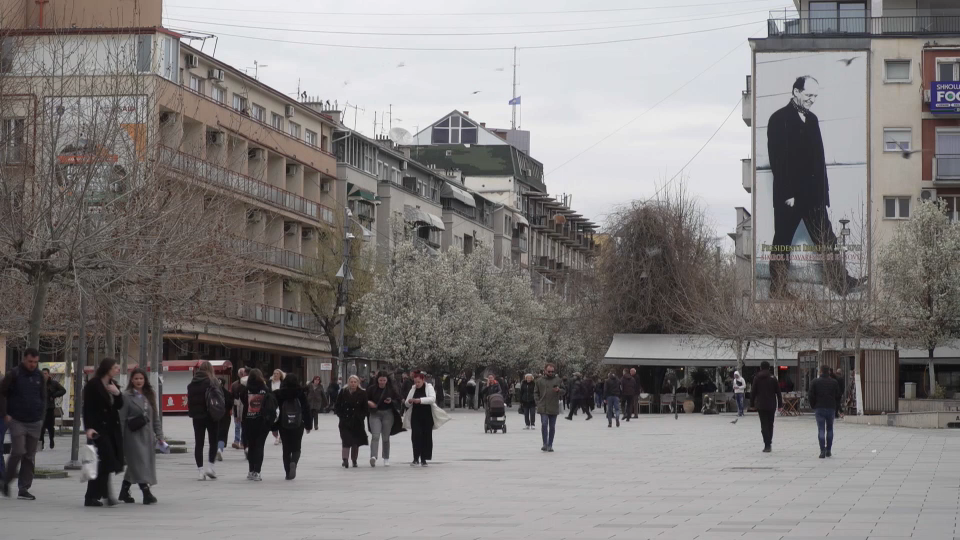
Kosovo still relying massively on remittances
N1
Kosovo heavily relies on remittances from its diaspora, contributing approximately a billion euros annually, roughly a third of its budget. This financial support is crucial, especially given recent spikes in inflation. According to the Kosovo Central Bank, remittances have been steadily increasing, reaching 1,343 billion euros in 2023, with 174,3 million euros in early 2024 alone. These funds, along with diaspora spending on visits and real estate investments, match the national budget of 3,3 billion euros, significantly aiding economic stability and reducing poverty.
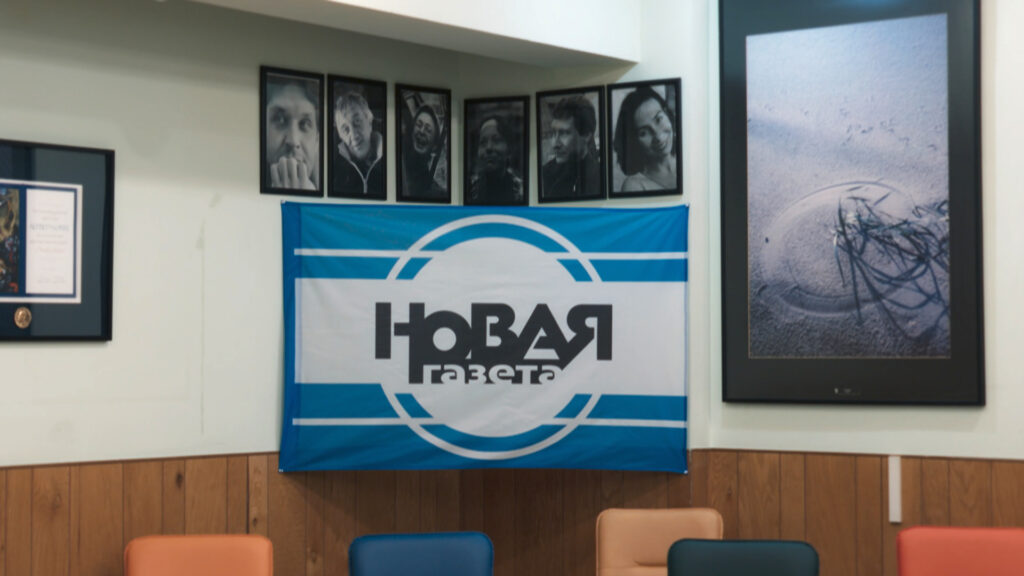
Freedom of press continue to decline in Serbia and Hungary
Radio Free Europe
Press freedom has deteriorated in Eastern Europe, including in the Balkans, and Central Asia, with governments mimicking Russia’s crackdown on free speech, according to Reporters Without Borders (RSF). Serbia, in particular, fell to the 98th position in RSF’s rankings, showcasing how Moscow’s propaganda is echoed by Serbian media. Moreover, Russian anti-war journalists in Serbia face threats of expulsion. The report also highlights a broader regional trend termed “Orbanization,” after Hungary’s Prime Minister Viktor Orbán, describing efforts to suppress independent journalism, with Hungary ranked now 67th.
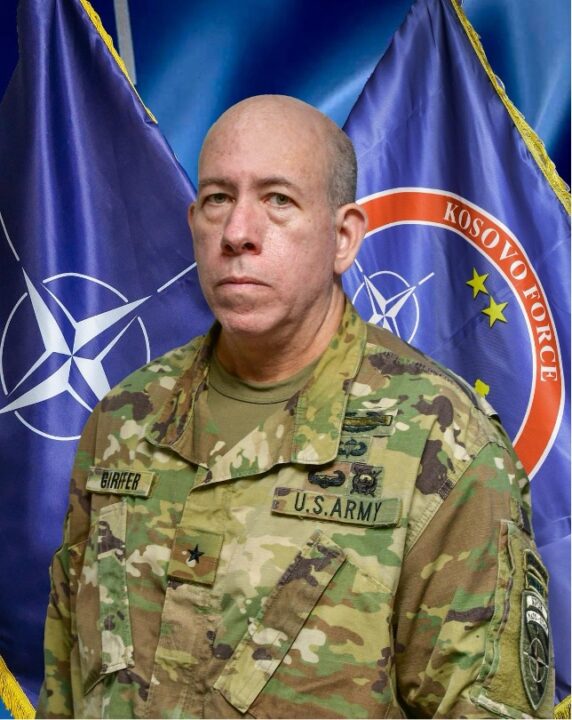
KFOR in Kosovo gets new Chief of Staff
N1
American Brigadier General Arthur J. Garffer took over as KFOR Chief of Staff, the NATO-led mission said. He succeeded Brigadier General John Bozicevic at a ceremony at KFOR headquarters in Pristina. KFOR Commander Turkish General Özkan Ulutaş praised Bozicevic as a cornerstone of KFOR’s daily activities, highlighting his dedication and professionalism. Garffer, actually in the West Virginia National Guard, has an extensive combat and command experience in the Special Forces and has earned four Masters in economic and strategic discipline.
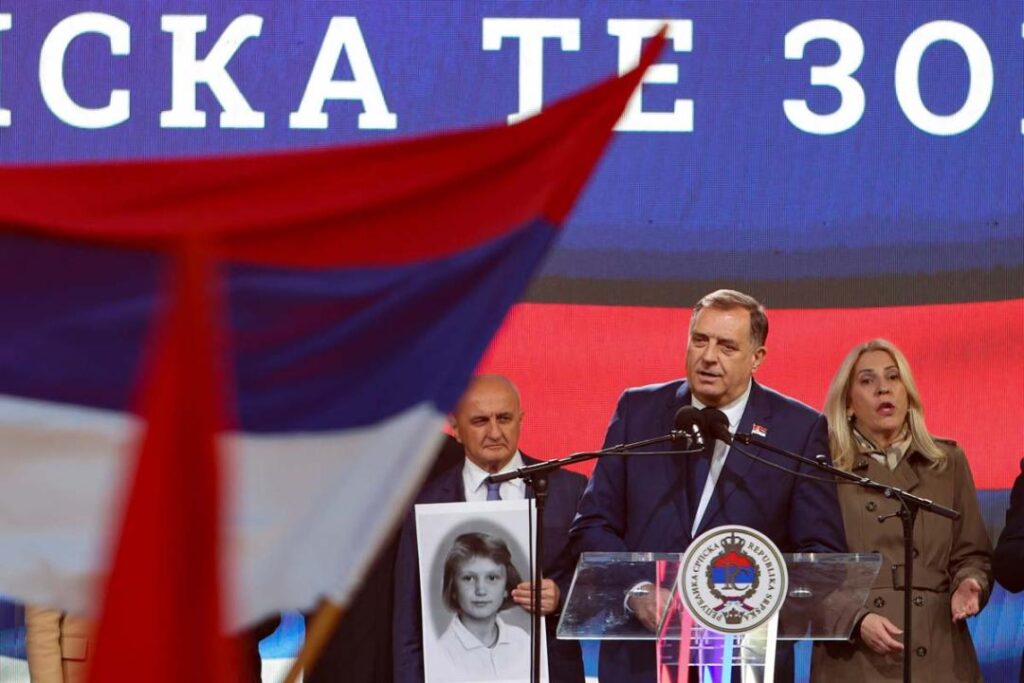
Bosnia on the verge of collapse, ICG warns
International Crisis Group
Bosnia and Herzegovina is at its most fragile moment in years, the International Crisis Group (ICG) warned in a new report. Republika Srpska (RS), the smaller of its two ethnically divided parts, is taking cautious but steady steps to break away due to grievances with the country’s international supervision, ICG said. “Violence is possible, especially in ethnically mixed areas, though it is unlikely in the near term,” the report reads.
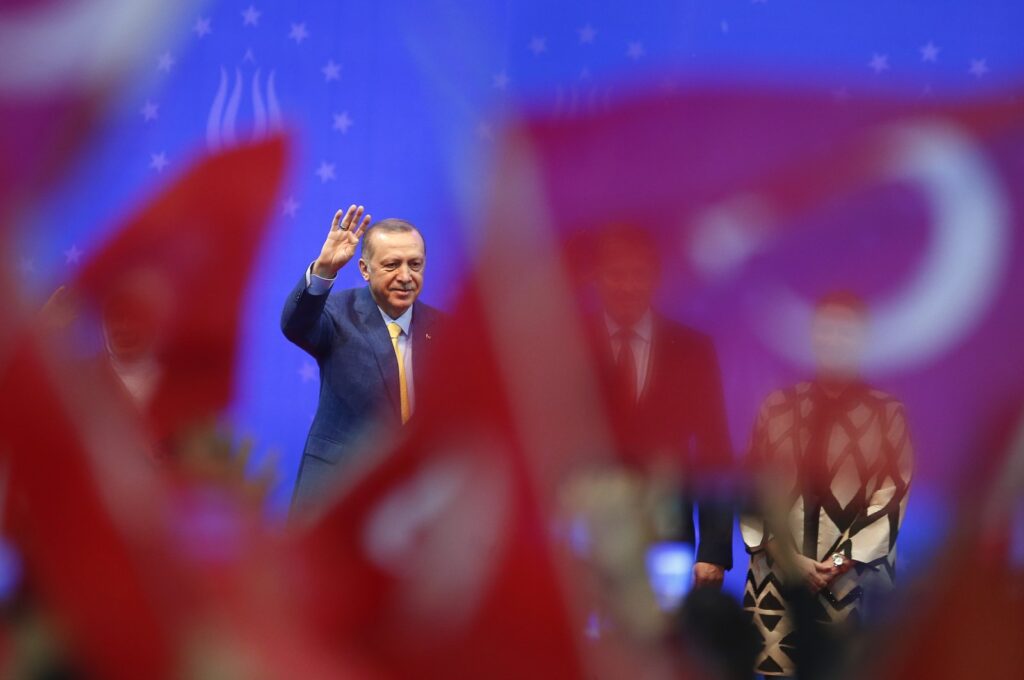
Erdogan most admired foreign leader in the Balkans
Daily Sabah
Turkish President Recep Tayyip Erdogan is the “most admired leader” in the Western Balkans, according to a regional survey by the International Republican Institute. Erdogan led the survey in Albania, Bosnia-Herzegovina, Montenegro, and North Macedonia. In Serbia, Putin was the most admired leader with 80%, followed by Xi with 73%, and Erdogan with 41%. In Kosovo, Biden was the most respected leader with 85%, followed by Erdoğan with 82%. Turkish media noted that under the Justice and Development Party (AK Party), the Balkans were again designated by Turkey as a strategic region, though not a top priority.
The Insight Angle

Ian Bancroft
is a writer and former diplomat based in the Balkans for over fifteen years. He is the author of ‘Dragon’s teeth - tales from north Kosovo’, published by ibidem Press in Europe and Columbia University Press in the US, and ‘Luka’, a novel inspired by Bosnia and Herzegovina. In his diplomatic stints, Ian has been seconded to the EU’s Rule of Law Mission in Kosovo (EULEX) and the Organisation for Security and Co-operation’s (OSCE) in Bosnia-Herzegovina and Serbia. He has written analysis for a variety of publications, including The Guardian, Balkan Insight, Radio Free Europe, and Business New Europe.
The Western Balkans are witnessing several old and new crises unfolding or deepening. One of these is arising in North Macedonia, following the return to power of VMRO-DPMNE, the conservative-nationalist party advocating for a return to the old name ‘Macedonia,’ which has already angered Greece. Meanwhile, tensions with Bulgaria are escalating again. Do you foresee a major crisis between Skopje, Athens, and Sofia? What potential consequences might this entail? And is the EU partly to blame for the current issues?
The EU failed to uphold its end of the deal with Skopje when the landmark Prespa Agreement was signed. The compromises made have not been rewarded. Expectations were raised and then extinguished. Though this is not the sole issue behind the return of The Internal Macedonian Revolutionary Organization – Democratic Party for Macedonian National Unity (VMRO-DPMNE), the lack of progress towards membership aggravates other factors; whether they pertain to the cost of living or a lack of progress on justice and the rule of law. The ability of individual EU member states to stall accession needs to be curtailed, especially at these early stages, otherwise reform momentum will never emerge. Backsliding on Prespa – particularly regarding the use of the name – will only rouse sentiments in Athens and further encourage Bulgarian obstructionism. The prognosis then, with nationalist forces at the helm in Skopje, is far from optimistic. The lesson of North Macedonia is a warning to the EU elsewhere in the Western Balkans: don’t let bilateral disputes stall EU accession in its delicate moments.
Regarding the ‘Srebrenica resolution’ passed by the UNGA in May, Dodik has openly spoken about the “end of Bosnia and Herzegovina,” threatening secession. How serious will be the situation in the country after the resolution, and can we expect an escalation of tensions?
Dodik has taken tangible steps to challenge the country’s sovereignty, with laws opposing the implementation of decisions taken by the country’s Constitutional Court and High Representative. The latest manifestation is attempts by the Republika Srpska to oppose electoral law amendments imposed by the High Representative. Though this year’s local elections will be conducted in accordance with BiH’s legislation, further spikes in rhetoric and tension are inevitable. Threats that Bosnian Serbs will withdraw from various state-level institutions, including the joint armed forces, are unrelenting. Beneath the shadow of Dodik’s trial for failing to implement decisions of the High Representative, there are concerns about stand-offs between opposition security actors, particularly in the event of attempts to arrest Dodik. Interpretations of the Srebrenica Resolution – in terms of its content, intent, and the process by which it was reached – have been used to further inflame the situation. Localised violence in such a context cannot be ruled-out and EUFOR needs to remain engaged, preferably with a deeper footprint.
Meanwhile, Kosovo’s bid for the Council of Europe temporarily failed, renewing tensions with Belgrade, while the dinar ban continues to provoke new issues in the north. With the EU-facilitated dialogue stuck, do you anticipate any major breakthroughs, possibly after the European elections?
There will be no breakthrough in the dialogue until Pristina establishes the long-awaited Association/Community of Serb-majority Municipalities, which is now imperative for ensuring the return of Kosovo Serbs to key institutions in the north. There will be an inevitable state of flux as a new dialogue team is established, plus there is the prospect of potential snap elections in Kosovo. Were Kurti and Vetëvendosje to be ousted, then there is scope for a reset of relations between Belgrade and Pristina, with the opposition arguing for better coordination with Kosovo’s international partners. If right-wing forces do as well as predicted in the upcoming European parliamentary elections – and if Trump returns to the presidency – then it is hard to see how Kosovo will fare better in international circles without a substantial change of course. If Kurti remains in power, a continuation of the current path of antagonism can be expected; a dynamic that has been further complicated by Banjska and a subsequent sense of inaction by the international community.
With the EU currently more focused on Ukraine and the upcoming elections, we also observed the warm reception given to Chinese President Xi in Belgrade (and in Budapest). How significant was Xi’s visit to Serbia, and how dangerous is a reinforced Chinese presence in the Balkans for the EU (and for the region)?
President Xi’s visit to Serbia came with great symbolic importance, marking as it did twenty-five years since the Chinese Embassy in Belgrade was bombed by NATO. It allowed both countries to raise their eyebrows towards notions of international law, with each eager to fuel their respective cases vis-a-vis Taiwan and Kosovo. For Serbia, relations with China offer the chance to sell a vision of investment and progress that, in Belgrade’s eyes, can more than rival that presented by the EU. Alongside a 2023 Free Trade Agreement, China invests heavily in infrastructure, including renewable energy and defence sector cooperation. The more concerning elements are those agreements on extradition and the media, adding to concerns arising from, for instance, the use of Chinese surveillance technology and joint police patrols. Hungary and Serbia are exploiting Europe’s inconsistencies and uncertainties vis-a-vis China. Macron received President Xi with great fanfare while potential trade measures against Chinese electronic vehicles are being considered. Mixed messages abound.
The Key Story
Strategic trends
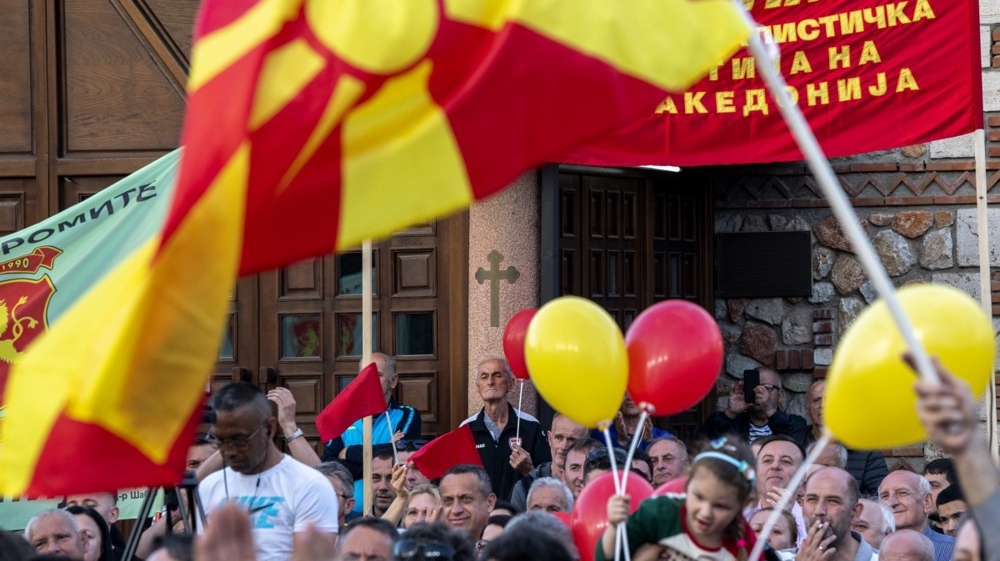
Nationalists’ triumph in North Macedonia reawakens tensions with Athens and Sofia
The conservative-nationalist party VMRO-DPMNE won both the presidential and parliamentary elections in North Macedonia in May, dealing a major defeat to the previously ruling pro-European parties. With VMRO-DPMNE’s return to power, North Macedonia appears headed for a renewed political and diplomatic clash with neighbouring Greece and Bulgaria, jeopardising Skopje’s European aspirations and opening a new front of destabilisation in the Balkans, together with the one in Bosnia and the one between Serbia and Kosovo.
The VMRO-DPMNE party, since 2017 in opposition, achieved a sweeping victory by winning both the presidential and parliamentary elections. Gordana Siljanovska-Davkova, an independent candidate endorsed by VMRO-DPMNE, made history as the country’s first female president, securing 65% of the vote in the second round of the presidential elections. In the parliamentary elections, the VMRO-DPMNE-led coalition, “Your Macedonia,” garnered more than 40% of the votes, while incumbent Social Democratic Union of Macedonia (SDSM) suffered significant setbacks, a drastic decline in support from previous elections.
According to many political analysts and experts, the shift towards the nationalists is attributed to the lack of progress in the EU integration process, as well as the economic and energy crises triggered by the Ukraine war. Many voters also chose VMRO-DPMNE as a protest vote, frustrated by unfulfilled promises of rapid progress towards EU membership in recent years.
The return to power of the right-wing VMRO-DPMNE poses a significant risk of isolating North Macedonia by reigniting crises that seemed resolved or were headed towards a political solution. This negative scenario was confirmed immediately after the electoral triumph, particularly at the inauguration of the new president, Gordana Siljanovska-Davkova.
The president caused an uproar in Athens, Brussels, and many other European capitals by omitting the adjective “North” and referring to the country simply as “Macedonia” in her speech. This occurred despite her signing a formal oath under the country’s constitutional name on the same day. Skopje’s 2018 Prespa Agreement with Athens, which added the prefix “North” to the official name of the former Yugoslav republic, ended decades of disputes with neighbouring Greece, which opposed its neighbour bearing the same name as one of its historic provinces. The issue had previously led Greece to block the country’s NATO membership and delay talks on its path to eventually becoming an EU member.
Soon after, Hristijan Mickoski, president of VMRO-DPMNE and the new potential prime minister, stated he would refrain from verbally using the country’s constitutional name, excluding the geographical designation “North”. Mickoski emphasised that while his party’s government will use the constitutional name in official communication within and between institutions, they will exercise their “individual right” to use the terms “Macedonia” and “Macedonian” in statements and speeches. Since 2018, the VMRO-DPMNE is strongly against the deal with Athens.
The positions expressed by the new political leadership in North Macedonia immediately reignited the spat with Greece. Greece’s Ambassador to Skopje, Sophia Philippidou, decided to leave the inauguration ceremony of Gordana Siljanovska-Davkova, while the Greek Foreign Ministry later issued a statement saying that the new president’s actions violated an agreement between the two nations and endangered both bilateral relations and North Macedonia’s prospects of joining the European Union.
“The provocative decision of the new president of North Macedonia to violate the official text of her oath and refer to her country by a different name constitutes an illegal and unacceptable initiative. It breaches the Prespa Agreement and the constitution of her state. It also undermines its future prospects,” Greek Prime Minister Kyriakos Mitsotakis noted.
The tensions soon extended to neighbouring Bulgaria, which is opposing North Macedonia’s EU accession. Before the integration process proceeds, Bulgaria demands that Skopje include its ethnic Bulgarian minority in the constitution as one of the state’s founding peoples, part of a larger dispute over history and identity that has been ongoing for more than 30 years. However, the VMRO-DPMNE also opposes amending Macedonia’s Constitution to appease Sofia.
“Bulgaria does not accept statements and behaviour that contradict both the 2017 Treaty of Friendship, Good Neighbourliness and Cooperation, as well as other international treaties that the Republic of North Macedonia has signed. Bulgaria has repeatedly and clearly stated its position that the contracts must be implemented,” said Bulgaria President Rumen Radev. “The European perspective of North Macedonia depends on the strict implementation of the international treaties to which it is a party, as well as on the negotiation framework approved by the European Council in July 2022, which will not be revised,” Radev underlined.
With Skopje again at odds with Bulgaria and Greece, there are growing concerns about the direction North Macedonia will take following the recent elections. And doubts are mounting about the country’s ability to manage tensions with its neighbours and accelerate the EU integration process.
Further News and Views
XI emphasizes Chinese’s influence in Serbia and Hungary during trip to Europe
Sources: Euractiv, New York Times, Politico, The Guardian, South China Morning Post
China accentuated its growing influence in the Balkans and Central Europe with an official visit by President Xi Jinping to Hungary and Serbia in May. These nations, along with France, were the only European countries visited by the Chinese leader on his first trip to Europe following the pandemic.
China has invested billions in Serbia and neighbouring Balkan nations, primarily in the mining and manufacturing sectors. Last year, Beijing and Belgrade ratified a Free Trade Agreement, which will enter into force in July, and President Xi was greeted with the highest honours in Belgrade.
“We have a clear and simple position regarding Chinese territorial integrity. Yes, Taiwan is China,” stated Serbian President Vučić during Xi’s visit. They subsequently appeared together to sign a joint declaration, which included commercial commitments such as the purchase of new Chinese trains, the establishment of new air routes and an increase in Serbian imports.
Xi’s visit coincided with the 25th anniversary of the 1999 NATO bombing of the Chinese embassy in Belgrade, which resulted in the deaths of three individuals. “Do not forget that our Chinese friends stood with us 25 years ago when this country was being demolished and bombed,” President Vučić told an assembled crowds during the visit.
In Orban’s Hungary, Xi Jinping pledged to enhance the already thriving economic ties with Hungary, urging this key European Union ally to “play a bigger role” in strengthening relations between Beijing and the EU. The Chinese leader also encouraged Hungary, which is set to assume the EU’s rotating presidency in the latter half of the year, to actively promote new developments in China-EU relations. Several new initiatives were announced, including the construction of rail infrastructure, an oil pipeline connecting Hungary and Serbia and collaboration in the nuclear sector.
UNGA adopts ‘Srebrenica resolution’, angering Serbs
Sources: N1, BNE Intellinews, OHCR, Al Jazeera, Balkan Insight
The United Nations General Assembly adopted a Resolution on the Genocide in Srebrenica. The majority of UN member states decided that the 11th of July would be observed annually as the International Day of Remembrance for the Srebrenica Genocide, similarly to how 27 of January is Holocaust Remembrance Day and 7 April is the International Day of Reflection on the 1994 Genocide Against the Tutsi in Rwanda.
Germany and Rwanda initiated the text, while Montenegro submitted amendments clarifying that the responsibility for the genocide is personal and not of all Serbs. In the end, 84 countries voted in favour, 19 were against, and 68 abstained, prompting opponents like Serbia, Russia and China to claim it was illegitimate and lacking support.
Tensions increased in the Western Balkan region ahead of the UN debate, and the adoption of the resolution sparked protests in several ex-Yugoslav countries. Bosnian Serb leader Milorad Dodik warned that Republika Srpska would pursue a peaceful separation from Bosnia, stating: “We do not want to live with those who violate the Constitution of BiH and who violate the strategy on foreign policy”.
EU - NATO
EU finally adopts the Growth Plan for the Balkans
Sources: European Western Balkans, European Council, Associated Press
In May, the European Council gave its final approval to the Reform and Growth Facility for the Western Balkans, aimed at bolstering EU-related reforms and economic growth in the Balkan region still out from the EU.
According to the plan, from 2024 to 2027 the Facility plans to allocate up to €2 billion in grants and €4 billion in loans to six Western Balkan nations that are still not part of the European Union. However, there are many preconditions set by the European Parliament for accessing these funds.
They include enhancing democratic mechanisms, ensuring free media, combating disinformation, maintaining the rule of law, and aligning with the EU’s foreign and security policy, particularly regarding sanctions against Russia, a condition that might be particularly hard for countries such as Serbia.
Serbia and Kosovo, to receive the aid, should also engage more constructively in the dialogue. Moreover, beneficiaries must submit a Reform Agenda to the Commission to receive the funds.
ECONOMICS
Economies in Balkans growing again
Sources: EBRD, BNE Intellinews
The European Bank for Reconstruction and Development (EBRD) forecasted growth in its regions of operations at 3.0% in 2024, up from 2.5% in 2023, with the Balkans topping at 3.3% this year.
The median growth forecast, however, fell slightly below last September’s projections, with a downward revision of 0.2 percentage points. This revision was partly attributed to weak performance in early 2024, reflecting Germany’s economic stagnation.
Despite facing headwinds from global geopolitical tensions, including trade restrictions, the EBRD remained optimistic about the economic trajectory of its regions, projecting a further uptick in growth to 3.6% in 2025. In the Southeast European EU member countries, GDP growth was projected to increase from 2.0% in 2023 to 2.8% in 2024, supported by accommodative fiscal policies and robust real wage growth.
Growth in the Western Balkans was expected to rise to 3.3% in 2024 from 2.5% in 2023, with Kosovo set to be the fastest-growing economy in the Western Balkans region in both 2024 and 2025, with its forecast for 4.0% growth remaining unchanged.

Stefano Giantin
Journalist based in the Balkans since 2005, he covers Central- and Eastern Europe for a wide range of media outlets, including the Italian national news agency ANSA, and the dailies La Stampa and Il Piccolo.

